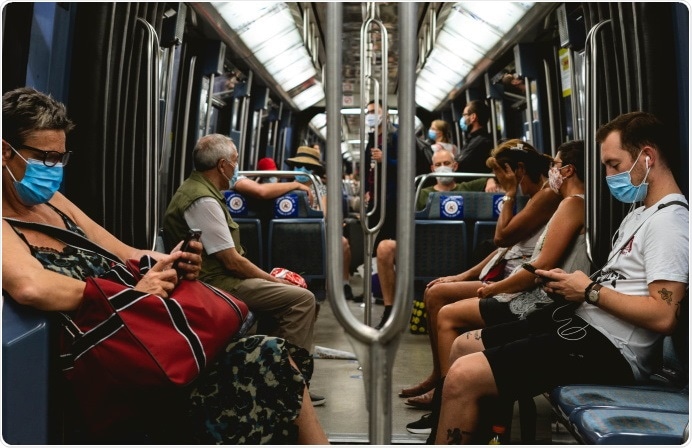The dynamics of the ongoing COVID-19 pandemic around the world could provide a valuable understanding of the efforts to reduce climate change.

The pandemic has shown that when reaction time is kept to a minimum, a larger public health crisis can be averted. Image Credit: Davyn Ben/Unsplash.
A team of researchers from the Potsdam Institute for Climate Impact Research (PIK) has highlighted the parallels between the climate emergency and global health. They analyzed what citizens and policymakers can learn from the recent corona outbreak and how to implement it for the global effort of decreasing CO2 emissions.
The researchers’ proposal is a Climate Corona Contract that unifies both the older and younger generations.
The corona crisis is a test case for global emergency prevention and management in general. The pandemic has shown that when reaction time is kept to a minimum, a larger public health crisis can be averted. In fact, we should take this very lesson to heart and apply it to managing the climate emergency.”
Kira Vinke, Study Lead Author, Potsdam Institute for Climate Impact Research
Assessing risks and predicting outcomes
Vinke and the group of authors have examined four dimensions of hazard management: that is, diagnosis, prognosis, therapy, and rehabilitation. The team inferred the kind of lessons of the COVID-19 pandemic that could be utilized to balance the global mean temperature.
According to Johan Rockström, the study’s co-author and director of the Potsdam Institute for Climate Impact Research, “The risks and causes of both the coronavirus and the climate crisis have to be scientifically assessed and quantified.”
However, prognostic approaches are equally significant as diagnostics: “Countries like New Zealand and Germany were able to predict the outbreak’s possible effects and moreover had the ability of immediate action. In the same vein, the global community must integrate climate risks assessments into decision making and act accordingly,” added Rockström.
The authors debated that a better understanding of the corona crisis can help identify routes for treating the symptoms and causes of climate change.
Both the Corona and the climate crisis are the result of increasing human pressure on the planet. But the good news is that the pandemic has demonstrated that with a combination of government action and individual lifestyle changes, it is possible to prevent damages. If there is a will, there is a way.”
Sabine Gabrysch, Study Co-Author, Potsdam Institute for Climate Impact Research
Compassion and solidarity as guiding principles
The team concluded by suggesting an intergenerational Climate Corona Contract informed by reason as well as the principle of social justice.
Younger generations would agree to protect the elderly from COVID-19 by adhering to social distancing measures, while the older generations would push for measures to keep global warming in line with the Paris Agreement.”
Hans Joachim Schellnhuber, Study Co-Author and Former Director, Potsdam Institute for Climate Impact Research
Hence, the team has a cautiously optimistic outlook: New forms of social communications and the outpouring of generosity in the wake of the COVID-19 pandemic demonstrate excellent potentials for collaboration towards the stabilization of global climate, which is urgently needed.
Source:
Journal reference:
Vinke, K., et al. (2020) Corona and the climate: a comparison of two emergencies. Global Sustainability. doi.org/10.1017/sus.2020.20.